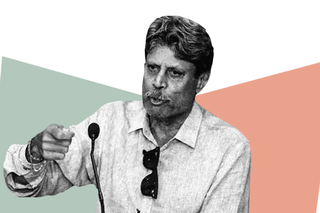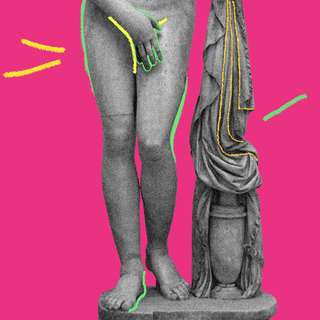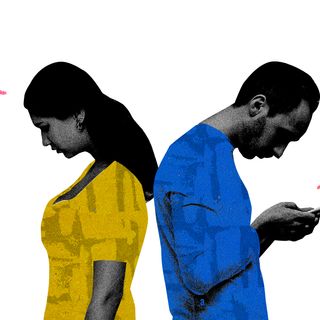
How Kapil Dev Dismissing Mental Illnesses as Fads Actively Harms People
Given how much Indians idolize and emulate celebrities, Kapil Dev trivializing mental health sets a poor example for his fans.

“I can’t understand these American words, like ‘pressure’ and ‘depression’… If a player has passion, then there will be no pressure.” Former cricketer Kapil Dev said recently at an event organized by an ed-tech company. Dev went on to mock students, too, for feeling any form of pressure. According to him, the financial safety net of their parents paying for their education in air-conditioned classrooms, where teachers are prohibited from physically assaulting them are privileges that should prevent them from experiencing stress. These are things to be grateful for, not stress about, he appears to imply.
A 27% rise in suicides among Indian students between 2016 to 2021 — with more than 13,000 students dying by suicide in 2020 alone — points to the ignorance that’s palpable in Dev’s remarks. Moreover, according to a report by the WHO, one in every 20 Indians suffers from depression, which goes on to show that depression is hardly an American fad. unlike what Dev would have us believe.
“I have the utmost respect for Kapil Dev. He defined my generation. But people should stick to things they know about. I don’t comment on cricket. Likewise, he should stick to cricket,” tweeted Soumitra Pathare, a consultant psychiatrist and director of the Center for Mental Health Law and Policy, Pune.
The issue is one of precedent-setting, within and outside the world of sports. Like Pathare, many Indians have grown up worshipping Dev for leading India’s cricket team to its first World Cup victory. But, unlike Pathare, not all of them might have the education — or even the lived experience — to recognize the flaws in Dev’s statements. Given how notorious the culture of celebrity idolization is in India — prompting people to not just adulate, but also emulate celebrities — when people wielding as much structural power as Dev choose to actively trivialize mental health, they set a poor example for his fans.
Besides, his statement and the resounding applause that followed it, also invalidate the struggles of millions of Indians –many of whom have, perhaps, grown up admiring Dev — battling with mental illnesses. As past research has shown, invalidation of people’s pain propels them further toward depression — proving just how callous Dev’s remarks were, especially in a country where 56 million people are struggling with depression, and 38 million, with anxiety disorders.
Related on The Swaddle:
Naomi Osaka Quitting French Open Sets an Example to Prioritize Mental Health at Work
Not only that, statements like these can potentially set back the progress made by mental health advocates and professionals to reduce the stigma surrounding mental health, which is further pushed into silence in the competitive realm of sports. “The fear of stigma is rife in sports because we expect our athletes to be ‘strong’ and larger than life. But if we want players to achieve both wellbeing and peak performance, mental health needs to be given the same importance as physical health,” notes Divya Jain, a Delhi-based psychologist.
Sports, in particular, fosters a culture of competition and resilience. It demands physical rigor from people in the public gaze, who simultaneously battle insecurities, injuries, a rigorous routine, and the crude realization of a short-lived career. There is evidence to suggest that the elite sports culture “with its heavy training demands and constant drive to improve performance, only serve to heighten the risk” of mental illnesses.
As Jain adds, “The focus needs to be on building mental health literacy, encouraging help-seeking behavior, creating social support networks, and providing access to treatment.” Dev’s remarks, on the other hand, do quite the opposite.
Virat Kohli, one of the most celebrated Indian cricketers, opened up about his struggles with mental health recently, “This is a very normal thing to feel, but we don’t speak because we are hesitant. We don’t want to be looked at as mentally weak. Trust me, faking to be strong is far worse than admitting to being weak.” What adds to this hesitance is precisely the kind of belief system reflected in Dev’s remarks.
And, if Dev’s views at all represent that of other senior members of the cricketing fraternity, then it’s no surprise that former spinner Maninder Singh resorted to alcohol rather than therapy because neither awareness nor help was readily available; many decades later, yet another Indian cricketer, Praveen Kumar, contemplated dying by suicide before seeking therapy.
Related on The Swaddle:
Serena Williams Is Quitting Tennis. It Speaks to Why Fan Cultures Must Allow Athletes to Evolve.
Dev’s statement, evidently, is symptomatic of people mistaking the rising awareness around mental health for mental illnesses themselves becoming “trendy.” It also betrays the systemic problem of millions of Indians who didn’t grow up in the age of the internet, dismissing mental health as a Western fad.
Such regressive discourse inevitably adds to the invisible barrier to seeking help — a rather grim prospect given that 2016’s National Mental Health Survey in India had found that 80% of people suffering from mental disorders, here, had not sought treatment.
Both Singh and Kumar were able to access help, eventually — no thanks to the stigma, of course, but to this very awareness around mental health. “Playing professional sport is always injurious to your physical and mental health,” table tennis player Sharath Kamal had noted earlier. “Mental health is being given importance now because there is awareness. Earlier, we did not know who to approach.”
Arguably, celebrity culture does influence how mental health conversations shape up in a national context. “[D]eepika speaking out about her depression publicly for the first time made an enormous difference for me. I wasn’t able to articulate my feelings for years, but when my parents watched her video, they began to grasp what I was going through and how I really needed help,” commented a Reddit user. Another one chimed in, “She is the reason a friend of mine is alive… I personally know someone who was brought back from the deep end.”
How people in positions of structural power use this social currency then becomes an imperative question, one that is essential to upholding the personhood of the individual.
Devrupa Rakshit is an Associate Editor at The Swaddle. She is a lawyer by education, a poet by accident, a painter by shaukh, and autistic by birth. You can find her on Instagram @devruparakshit.
Related


The Difference Between ‘Female Ejaculation’ and ‘Squirting,’ Explained
